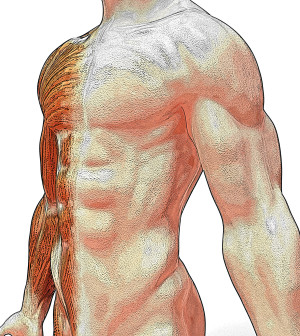- Double Mastectomy May Offer No Survival Benefit to Women With Breast Cancer
- Toxic Lead Found in Cinnamon Product, FDA Says
- Certain Abbott Blood Sugar Monitors May Give Incorrect Readings
- Athletes Can Expect High Ozone, Pollen Counts for Paris Olympics
- Fake Oxycontin Pills Widespread and Potentially Deadly: Report
- Shingles Vaccine Could Lower Dementia Risk
- Your Odds for Accidental Gun Death Rise Greatly in Certain States
- Kids From Poorer Families Less Likely to Survive Cancer
- Tough Workouts Won’t Trigger Cardiac Arrest in Folks With Long QT Syndrome
- At-Home Colon Cancer Test Can Save Lives
Calling Young Girls ‘Fat’ May Increase Their Teen-Obesity Risk


When people tell a young girl that she’s fat, that in itself increases her risk of eventually becoming obese, according to a new study.
The study included more than 2,300 young girls in California, Cincinnati and Washington, D.C., who had their height and weight checked when they age 10 and again at age 19.
At the start of the study, 58 percent of the girls had been told by a parent, sibling, friend, classmate or teacher that they were too fat. Those girls were 1.66 times more likely to be obese at age 19 than other girls, the University of California, Los Angeles (UCLA) researchers found.
And the greater the number of people who told a young girl she was fat, the more likely she was to be obese by her late teens, according to the study published online April 28 in the journal JAMA Pediatrics.
“Simply being labeled as too fat has a measurable effect almost a decade later. We nearly fell off our chairs when we discovered this,” study senior author A. Janet Tomiyama, an assistant professor of psychology, said in a UCLA news release.
“Even after we statistically removed the effects of their actual weight, their income, their race [either black or white] and when they reached puberty, the effect remained,” Tomiyama added. “That means it’s not just that heavier girls are called too fat and are still heavy years later — being labeled as too fat is creating an additional likelihood of being obese,” she said.
Although the study found an association between a girl being told she was fat and later risk of obesity, it didn’t prove cause-and-effect.
Being called fat can lead to many behaviors that lead to obesity, explained study co-author Jeffrey Hunger, a graduate student at the University of California, Santa Barbara.
“Being labeled as too fat may lead people to worry about personally experiencing the stigma and discrimination faced by overweight individuals, and recent research suggests that experiencing or anticipating weight stigma increases stress and can lead to overeating,” he said in the news release.
The findings show the dangers of criticizing people for their weight, according to senior author Tomiyama.
“When people feel bad, they tend to eat more, not decide to diet or take a jog,” she said. “Making people feel bad about their weight could increase their levels of the hormone cortisol [the stress hormone], which generally leads to weight gain.”
More information
The U.S. Centers for Disease Control and Prevention has more about healthy weight.
Source: HealthDay
Copyright © 2024 HealthDay. All rights reserved.










